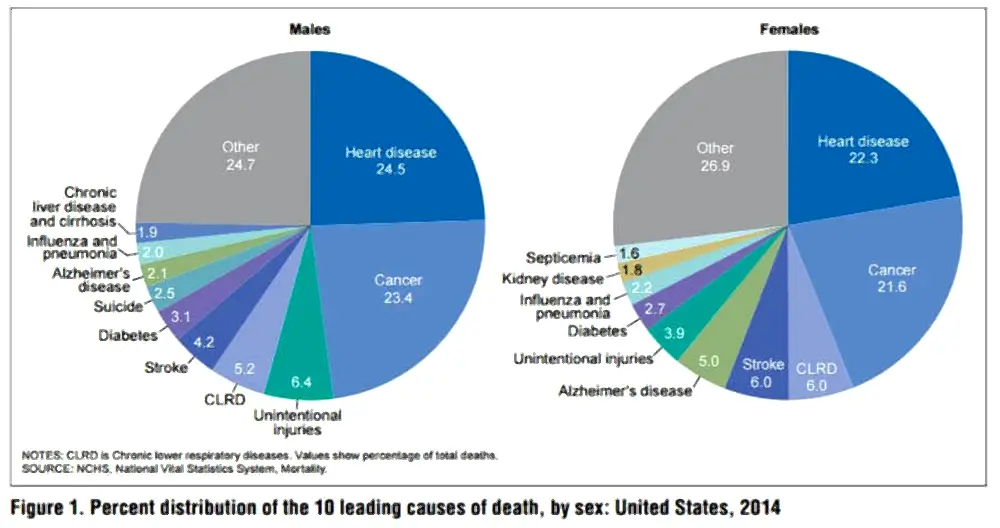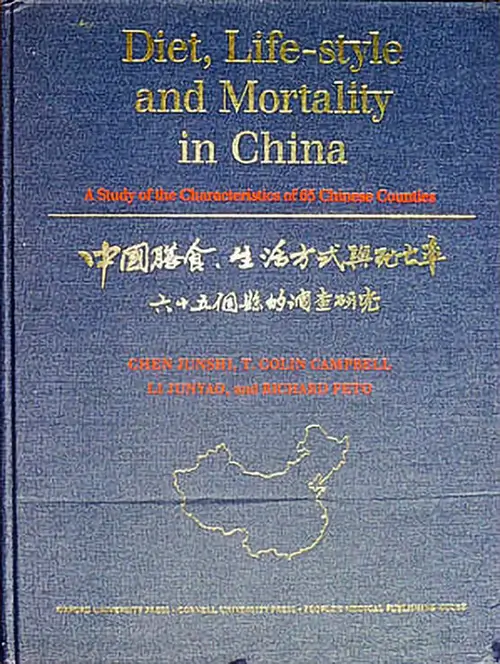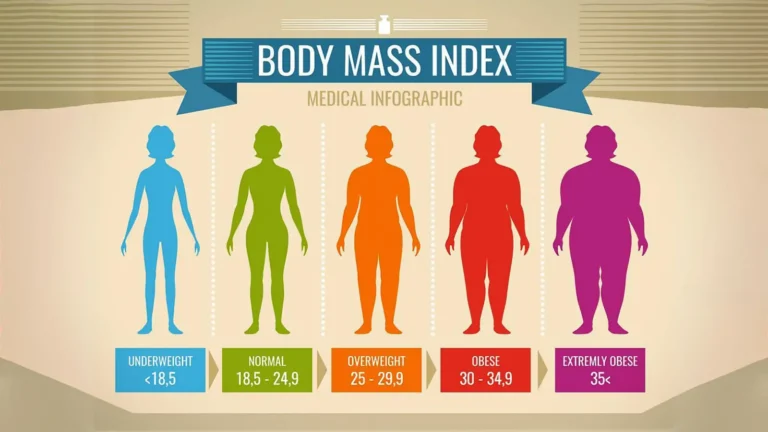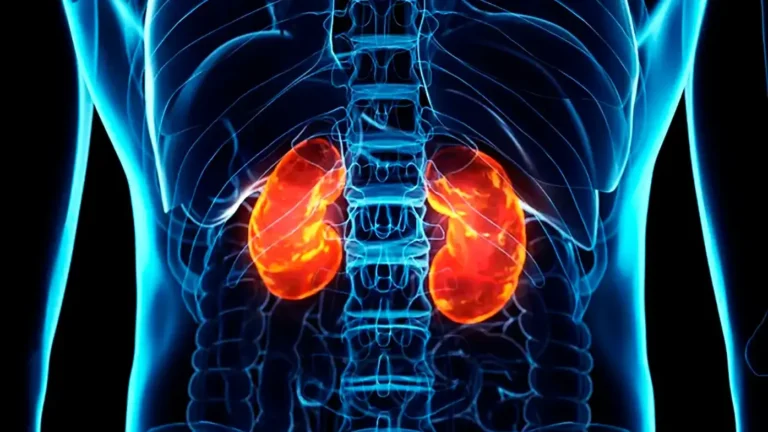El estudio de China - Los veganos argumento
El estudio de China mostró que no hay ninguna enfermedad del corazón o el cáncer o la diabetes en las comunidades rurales subdesarrolladas en el mundo con base de almidón de las dietas veganas.
Milos Pokimica
Escrito por: Milos Pokimica
Revisado Médicamente Por: Dr. Xiùying Wáng, M.D.
Actualizado el 9 de junio de 2023Cuando observamos nuestras tasas de mortalidad pronto nos damos cuenta de que algo no va como debería. Una de cada cuatro personas morirá de cáncer, una de cada cuatro de cardiopatía o ictus. Incluso si evitamos la muerte por algún tipo de enfermedad crónica tendremos un aumento del riesgo de muchas enfermedades que afectarán a nuestra calidad de vida aunque no muramos por ellas. Y esto no es natural. Por ejemplo, la situación en la China rural es diferente, como demostró el estudio de China.
Tampoco en el reino animal hay enfermedades cardíacas, cáncer o diabetes en un porcentaje tan elevado. Lo que esto significa es que la mayoría de las llamadas enfermedades de la opulencia están causadas por la dieta. Así es. Todos tenemos problemas de salud y enfermedades debido a nuestra incongruente vida evolutiva. La predisposición genética no es una causa fundamental. Durante mucho tiempo hubo un gran debate en la comunidad científica sobre las causas fundamentales de los problemas de salud modernos. Entonces se llevó a cabo una línea de estudios y los científicos encontraron la respuesta. Los científicos observaron a personas de diferentes partes del mundo afectadas por la pobreza y que, como consecuencia, seguían dietas vegetales basadas en algún tipo de almidón, como el arroz, por ejemplo, sin consumo marginal de productos animales.
Quizá uno de los estudios más amplios en este campo fue el Proyecto China-Cornell-Oxford (The China Study). En la década de 1980 se llevó a cabo en la China rural un amplio estudio observacional cofinanciado por la Universidad de Oxford, la Universidad de Cornell y el Gobierno de China. El estudio fue exhaustivo e incluyó 367 variables diferentes.
Se examinó a un total de 65 condados de China con 6.500 adultos mediante un reconocimiento médico, análisis de sangre, cuestionarios, etc. En 1983 se eligieron dos pueblos al azar en cada uno de los 65 condados rurales de China y se seleccionaron 50 familias al azar en cada pueblo. Se examinaron los hábitos alimentarios de un miembro adulto de cada familia, la mitad hombres y la mitad mujeres. Los resultados se compararon con las tasas de mortalidad en esos condados por 48 formas de cáncer y otras enfermedades durante 1973-75.
Fue uno de los estudios más importantes jamás realizados, conocido como The China Study.
Utilizaré algunas citas de "The China Study".
"En la China rural, la ingesta de grasas era menos de la mitad que en Estados Unidos, y la ingesta de fibra era 3 veces mayor. La ingesta de proteínas animales era muy baja, sólo un 10% de la ingesta estadounidense. La media de colesterol total en suero era de 127 mg/dL en la China rural frente a 203 mg/dL en adultos de 20 a 74 años en Estados Unidos. La mortalidad por enfermedad coronaria era 16,7 veces mayor en los hombres estadounidenses y 5,6 veces mayor en las mujeres estadounidenses que en sus homólogos chinos". (2)
(Campbell y otros, 1998)
"Cuando terminamos, teníamos más de 8.000 asociaciones estadísticamente significativas entre variables de estilo de vida, dieta y enfermedad". "Los resultados de estos y muchos otros estudios demostraron que la nutrición es mucho más importante para controlar la promoción del cáncer que la dosis del carcinógeno iniciador".
(Campbell y otros, 1998)
Y esta correlación era para todos los tipos de cáncer, no sólo para el cáncer de mama, que era casi inexistente, sino también para muchos otros tipos de cáncer. Incluso les costó encontrar mujeres que conocieran a otras personas que hubieran tenido cáncer de mama. Las personas que vivían en estas zonas rurales de China conocían la enfermedad pero nunca la habían visto. Tampoco había acné, por ejemplo. Muchas enfermedades y cánceres están asociados con hormonas como la IGF-1.
Tampoco había diabetes. No comían nada más que arroz y aún así, la diabetes no era una preocupación. La gente de la dieta paleo tiene dificultades con eso. Creen que el arroz blanco está relacionado con la diabetes como cualquier otro carbohidrato refinado. Entonces no hay enfermedades del corazón, y así sucesivamente.
"Las personas que comían más alimentos de origen animal sufrían más enfermedades crónicas. Las personas que comían más alimentos de origen vegetal eran las más sanas".
(Campbell y otros, 1998)
Tanto si te haces vegano como si no, te sugieren que pongas tantas plantas como sea posible en tu plato en cada comida. El estudio concluyó que los condados con un elevado consumo de alimentos de origen animal en 1983-84 también tendrían mayores tasas de mortalidad por enfermedades occidentales, mientras que ocurría lo contrario en los condados que consumían más alimentos de origen vegetal.
Ahora podemos decir que esto tal vez no esté relacionado con su dieta porque hay muchos otros factores como el ejercicio. Estas personas realizan principalmente trabajos manuales, y tal vez eso fue lo que los sostuvo. También había otras variables. Además, este no es el único estudio de este tipo. El problema con este tipo de datos es que van en contra de los intereses de la industria, y como es un estudio significativo, puede ser difícil refutarlo. Lo que suelen hacer es plantear una lógica falsa sabiendo que a la mayoría de la gente no le importa y necesita oír algo que le gusta para justificar sus comportamientos poco saludables.
Hay una buena cita de T. Colin Campbell en The China Study que dice:
“Americans love to hear good things about their bad habits.”
(Campbell y otros, 1998)
Por ejemplo, después de que se publicara el libro The China Study y causara impacto, llegó el debate escrito. En 2008, el "nutricionista" Loren Cordain argumentó que:
"La lógica fundamental que subyace a la hipótesis de Campbell (que las dietas bajas en proteínas [animales] mejoran la salud humana) es insostenible e incoherente con la evolución de nuestra propia especie".
Loren Cordain
Argumentó que hay culturas como los maasai y los esquimales que no sufren los problemas de salud descritos por los autores. Por cierto, eso es totalmente falso. Sin embargo, espera. ¿Hasta dónde llega la evolución de nuestra especie?
Es muy poco probable que personas educadas como ella no entiendan cómo funciona la evolución. Quizá la evolución llegue hasta donde nosotros necesitamos que llegue para poder justificar nuestra agenda. Esto es una inversión en estado puro. Nada que ver con la ciencia.
Personas como el nutricionista Loren Cordain saben muy bien cómo es la verdadera evolución, no son idiotas. Por cada estudio, tendremos doctores con doctorados apareciendo como hongos tratando de enturbiar el agua con datos diferentes sólo lo suficiente para crear confusión sabiendo bien que la gente hace lo que se siente bien no lo que es correcto. Hubo acusaciones contra Campbell de que distorsionó y tergiversó los datos del estudio y que tenía numerosos fallos en su razonamiento.
El problema es que sólo eran correlaciones estadísticas. En realidad, su trabajo no es para tanto. Hubo otros estudios estadísticos similares y estudios en bioquímica que más tarde demostraron la mayor parte de esta correlación estadística observada en los años 80 en experimentos reales in vivo e in vitro. Este estudio es noticia vieja solo que el libro salió hace poco e hizo enfadar al sistema. Aquí hay un ejemplo de sciencebasedmedicine.org.
"No me fijé en los elogios o críticas de otros hasta después de leer el libro, y lo que sigue representa mis impresiones independientes. He abordado el libro como cualquier libro con referencias científicas: Leo hasta que encuentro una afirmación que me parece cuestionable, y entonces compruebo las referencias dadas para la afirmación. Esto me hizo empezar inmediatamente con mal pie con este libro. En el primer capítulo, encontré la afirmación: "Las cardiopatías pueden prevenirse e incluso invertirse con una dieta sana".
sciencebasedmedicine.org
El médico concluyó que: "La salud es algo más que la dieta". Puedes confiar en The SkepDoc. Olvídate del estudio que tardó diez años y se recopiló en 894 páginas. Ella le dirá la verdad. Ella es una médica de familia jubilada que escribe sobre pseudociencia y prácticas médicas cuestionables y completó su internado en la Fuerza Aérea (la segunda mujer en hacerlo). Qué equivocado está el Dr. Campbell al decir eso. Él escribió en el libro: "Comer alimentos que contengan cualquier cantidad de colesterol superior a 0 mg no es saludable".
Puede ser una cuestión emocional, porque la mayoría de nosotros somos adictos a nuestros hábitos alimentarios. Imagínese. El Dr. Campbell observó una correlación entre el colesterol y las enfermedades cardíacas allá por los años 80. Una revisión muy científica e imparcial de scienebasedmadice.org. Este tipo de datos contradictorios me complicaron la vida. Tuve que dedicar años a mi propia investigación.
¿Está confundido? He aquí una estadística del estudio. En el condado de Guizhou, había no se registró ninguna muerte por enfermedad coronaria en 246.000 hombres durante un periodo de 3 años. Las enfermedades cardiacas no tienen nada de natural.
Asesino terrorista número uno en Occidente.
Referencias:
T. Centro Colin Campbell de Estudios sobre Nutrición NutritionStudies.org
- Chen, K., & Jin, M. (2007). Mortality, Biochemistry, Diet and Lifestyle in Rural China. Geographical Study of the characteristics of 69 Counties in mainland China and 16 Areas in Taiwan. Revista de Epidemiología y Salud Comunitaria, 61(3), 271.[PubMed]
- Campbell, T. C., Parpia, B., & Chen, J. (1998). Diet, lifestyle, and the etiology of coronary artery disease: the Cornell China study. Revista americana de cardiología, 82(10B), 18T-21T. https://doi.org/10.1016/s0002-9149(98)00718-8
Contenidos Relacionados
¿Tienes alguna duda acerca de la nutrición y la salud?
Me encantaría saber de usted y responderlas en mi próxima publicación. Agradezco sus aportes y opiniones y espero tener noticias suyas pronto. También te invito a síguenos en Facebook, Instagram y Pinterest para más contenidos sobre dieta, nutrición y salud. Puedes dejar un comentario allí y conectar con otros entusiastas de la salud, compartir tus consejos y experiencias, y recibir apoyo y ánimo de nuestro equipo y nuestra comunidad.
Espero que este post le haya resultado informativo y ameno y que esté preparado para aplicar los conocimientos adquiridos. Si le ha resultado útil, por favor compártelo con tus amigos y familiares que también podrían beneficiarse de ella. Nunca se sabe quién puede necesitar orientación y apoyo en su camino hacia la salud.
– También Te Puede Interesar –

Aprenda Sobre Nutricion
Milos Pokimica es doctor en medicina natural, nutricionista clínico, escritor sobre salud médica y nutrición y asesor en ciencias de la nutrición. Autor de la serie de libros Go Vegan? Revisión de la Ciencia, también dirige el sitio web sobre salud natural GoVeganWay.com.
Descargo De Responsabilidad Médica
GoVeganWay.com le ofrece reseñas de las últimas investigaciones relacionadas con la nutrición y la salud. La información proporcionada representa la opinión personal del autor y no pretende ni implica sustituir el asesoramiento, diagnóstico o tratamiento médico profesional. La información proporcionada tiene fines informativos únicamente y no pretende sustituir la consulta, el diagnóstico y/o el tratamiento médico de un médico o proveedor de atención médica calificado.NUNCA ignore el CONSEJO MÉDICO PROFESIONAL O RETRASAR la BÚSQUEDA de TRATAMIENTO MÉDICO a CAUSA DE ALGO QUE HAYA LEÍDO EN O accesibles a TRAVÉS de GoVeganWay.com
NUNCA APLICAR CUALQUIER cambio de ESTILO de vida O CAMBIOS EN su totalidad COMO UNA CONSECUENCIA DE ALGO QUE HA LEÍDO EN GoVeganWay.com ANTES de CONSULTAR con LICENCIA PROFESIONAL MÉDICO.
En el caso de una emergencia médica, llame a un médico o al 911 inmediatamente. GoVeganWay.com no se recomienda ni aprueba ninguna de los grupos, las organizaciones, las pruebas, los médicos, productos, procedimientos, opiniones u otra información que pueda ser mencionado en el interior.
Selecciones del editor –
Milos Pokimica es escritor especializado en salud y nutrición y asesor en ciencias nutricionales. Autor de la serie de libros Go Vegan? Revisión de la Ciencia, también dirige el sitio web sobre salud natural GoVeganWay.com.
Últimos artículos -
Top Noticias De Salud — ScienceDaily
- Just two days of oatmeal cut bad cholesterol by 10%en febrero 25, 2026
Eating nothing but oatmeal for just two days might sound extreme, but it delivered a striking payoff in a new clinical trial. People with metabolic syndrome who followed a short, calorie-reduced oat-based plan saw their harmful LDL cholesterol drop by 10%, along with modest weight loss and lower blood pressure. Even more surprising, the cholesterol benefits were still visible six weeks later.
- New drug target discovered for devastating “brain on fire” diseaseen febrero 25, 2026
Scientists have zeroed in on a critical weak spot behind a rare but devastating brain autoimmune disorder often known as “Brain on Fire.” The disease strikes when the immune system attacks NMDA receptors—key molecules involved in memory and thinking—leading to psychiatric symptoms, seizures, and even death.
- New brain stimulation approach could treat depression in just 5 daysen febrero 25, 2026
A weeklong, high-intensity version of TMS may work nearly as well as the standard six-week treatment for depression. In a UCLA study, patients who received five sessions a day for five days experienced meaningful symptom relief comparable to those on the traditional schedule. Some who didn’t improve immediately showed strong gains weeks later. The findings hint at a faster, more accessible path to recovery.
- Microplastics found in 90% of prostate cancer tumors, study revealsen febrero 25, 2026
Researchers have detected microplastics in nearly all prostate cancer tumors examined in a new study. Tumor tissue contained about 2.5 times more plastic than nearby healthy prostate tissue. Scientists say this is the first Western study to directly measure plastic particles in prostate tumors. More research is needed, but the findings suggest microplastic exposure could play a role in cancer development.
- Alzheimer’s may begin with a silent drop in brain blood flowen febrero 24, 2026
Subtle changes in brain blood flow and oxygen use are closely linked to hallmark signs of Alzheimer’s, including amyloid plaques and memory-related brain shrinkage. Simple, noninvasive scans may one day help spot risk earlier—by looking at the brain’s vascular health, not just its plaques.
- Scientists engineer bacteria to eat cancer tumors from the inside outen febrero 24, 2026
Researchers are engineering bacteria to invade tumors and consume them from the inside. Because tumor cores lack oxygen, they’re the perfect breeding ground for these microbes. The team added a genetic tweak that helps the bacteria survive longer near oxygen-exposed edges — but only once enough of them are present to trigger the change. It’s a carefully programmed biological attack that could one day offer a new way to destroy cancer.
- Massive US study finds higher cancer death rates near nuclear power plantsen febrero 24, 2026
A sweeping nationwide study has found that U.S. counties located closer to operating nuclear power plants have higher cancer death rates than those farther away. Researchers analyzed data from every nuclear facility and all U.S. counties between 2000 and 2018, adjusting for income, education, smoking, obesity, environmental conditions, and access to health care. Even after accounting for those factors, cancer mortality was higher in communities nearer to nuclear plants, particularly among older […]
PubMed, #Dieta vegana –
- Veganism: an extended theory of planned behavior framework incorporating ethical, environmental, and sociodemographic determinantsen febrero 20, 2026
CONCLUSION: This study broadens the TPB by integrating ethical, normative, and psychosocial dimensions that explain vegan intentions beyond traditional predictors. Findings underscore the importance of moral identity, perceived social expectations, and contextual factors in shaping sustainable dietary behaviors.
- Association Between Diet and Metabolome in Childhood and Adolescence: A Systematic Reviewen febrero 11, 2026
CONCLUSION: This review identifies several metabolites consistently associated with specific dietary components across different studies in children and adolescents. These findings support the potential of metabolomics for validating dietary biomarkers and improving the accuracy of dietary assessment in pediatric populations. Although metabolomic markers reflect actual dietary intake, their implications for health outcomes remain to be explored.
- Growth Trajectories in Infants From Families With Plant-Based or Omnivorous Dietary Patternsen febrero 5, 2026
CONCLUSIONS AND RELEVANCE: In this cohort study, infants from vegan households had growth patterns similar to those from omnivorous households, with a higher odds of early underweight that decreased by age 24 months. In the context of developed countries, these findings seem reassuring. Further research should examine vegan diet quality and the impact of nutritional counseling during pregnancy and infancy in supporting optimal infant development.
- Influences of vegan status on protein intake, lean body mass, and strength in lightly active, young women: A cross-sectional studyen febrero 5, 2026
CONCLUSION: These data suggest that functional indicators of body protein status may be adversely impacted by long-term adherence to vegan diets in young adult women.
- Iodineen enero 1, 2006
Iodine is an essential trace nutrient for all infants that is a normal component of breastmilk. Infant requirements are estimated to be 15 mcg/kg daily in full-term infants and 30 mcg/kg daily in preterm infants.[1] Breastmilk iodine concentration correlates well with maternal urinary iodine concentration and may be a useful index of iodine sufficiency in infants under 2 years of age, but there is no clear agreement on a value that indicates iodine sufficiency, and may not correlate with […]






















